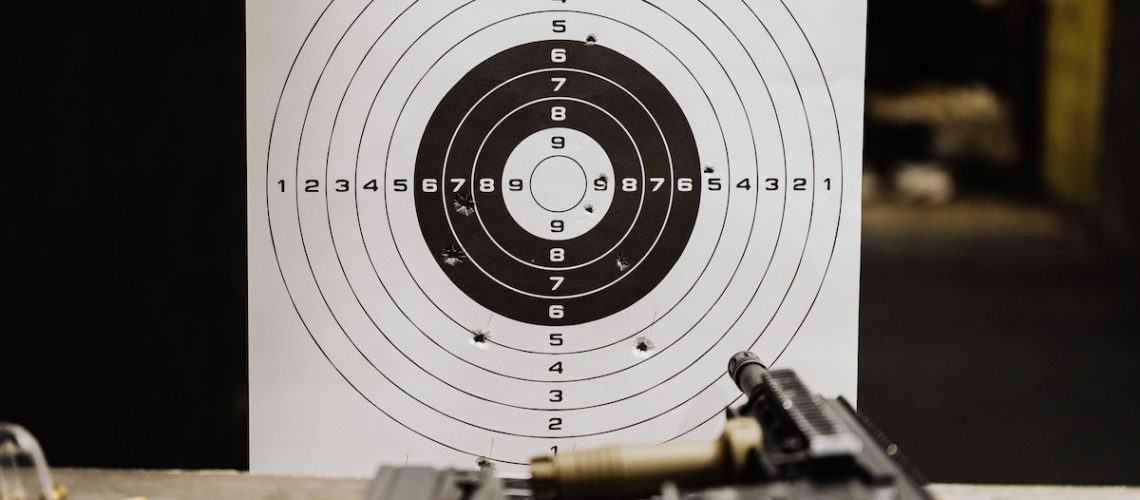Gun stores are a common target for criminal activity, making them inherently risky and vulnerable. Theft of firearms is one of the biggest threats to gun stores. It can cause significant financial losses regarding the stolen guns’ value and associated shoplifting costs. In addition, if firearms are stolen from a gun store and then used in illegal activities, such as robberies or homicides, then the store could face legal action due to their negligence in allowing the weapons to go missing. According to data from the Bureau of Alcohol, Tobacco, and Firearms (ATF), there were 2,476 reported incidents of theft from licensed firearm dealers in 2013 alone, resulting in an estimated loss of 24,590 firearms.
Another potential risk for gun stores is robbery. Gun shops are attractive targets for criminals looking for quick access to firearms and ammunition with minimal risk or difficulty. Data from the FBI reports that there were 454 robberies at gun stores throughout 2018 across all 50 states. This number had steadily increased since 2014, when just 316 thefts were reported. Furthermore, 11 percent of these robberies resulted in injuries or fatalities; five people were killed, while another 14 sustained severe injuries.
Because of those threats, gun stores must take security measures to protect their assets. Here are a few elements to consider.
Advanced Security System
Gun stores must take extra security measures to protect themselves from potential risks and losses. Security systems are essential elements that gun stores must invest in regarding safety. An advanced security system can help gun stores avoid theft, robbery, and other criminal activity.
A basic security system will have motion detectors and alarms that can alert the store owners or police of an intruder. However, these fundamental systems are often insufficient for a gun store’s needs for several reasons. First, gun stores need a higher level of protection due to their valuable merchandise; motion sensors may not be able to detect people trying to break into the shop from outside or even pick up movements inside the store if it is too dark or has poor visibility.
Second, a more advanced security system should feature better monitoring capabilities with high-tech surveillance cameras and automated alerts sent directly to store personnel or local authorities if needed. This way, store owners can keep an eye on their assets remotely rather than having someone physically watch them at all times, which is costly and impractical in many cases.
Staff Training
Unfortunately, security systems cannot deter criminals from doing what they must do. They might have state-of-the-art tools to help them break in, or they could have the upper hand against staff members who lack the appropriate training to handle such situations.
Therefore, store owners must ensure their employees are trained thoroughly in proper security protocols to protect themselves and their customers from potential risks. Staff should be familiar with safety procedures for handling firearms and ammunition and alarm systems, cameras, and other security tools used at the gun store.
Employees must also know how to react appropriately when faced with an intruder or robbery situation. This includes knowing when to call the police and aware of any exits or hiding places available in emergencies.
In addition, staff training should include drills that allow employees to practice these safety protocols regularly so they are always prepared and ready to react in an emergency.

Secure Storage Facilities
The most critical security measure for any gun store is to ensure that firearms and ammunition are securely stored. This means investing in suitable materials, such as high-quality safes or locked display cases, for storing weapons and keeping them away from unauthorized personnel.
Store owners should also invest in a sturdy wall safe with ample space to store valuable items like documents or handguns and robust shelving units for bulky items like rifles and shotguns. You must hide these secure storage facilities from view so they cannot be easily accessed by burglars or intruders looking to steal firearms or other merchandise.
Furthermore, it’s essential to have a backup plan if these secure storage facilities are breached. This could include a secondary safe, such as a fireproof or waterproof safe, to protect the store’s most valuable assets.
Finally, it is essential to keep firearms and ammunition away from customers who might be able to steal them without permission. Store owners should consider investing in gun locks or other safety measures to help prevent theft and ensure customer safety.
Store Insurance
As much as you want to prevent theft, sometimes it is inevitable. This is why it’s essential to have insurance specifically for gun stores in case of theft, robbery, or damage to the store itself and its contents.
Having the right kind of coverage can help cover any losses you incur from an incident at your store. Additionally, insurance can save you from financial ruin if you get sued due to negligence or if a firearm from your store harms a customer. A firearms insurance firm will have plenty of options to cover your shop’s security, staff training, and other liabilities so that you can research the best policy for your needs.
Final Thoughts
By taking these steps and investing in suitable security systems, store owners can rest assured that they are doing everything possible to protect their business, employees, customers, and merchandise from potential risks. With proper planning and implementation of these elements, gun store owners can keep their shops safe and comply with local laws.

